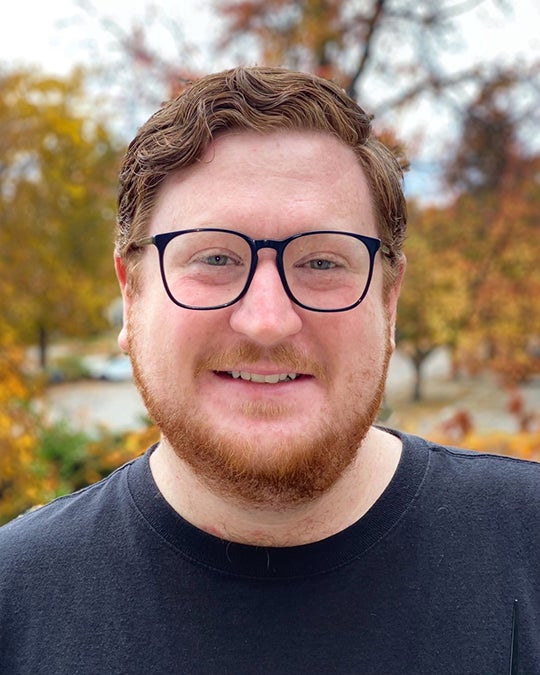Social work isn’t what you might think, and the students pursuing social work degrees through Boise State’s School of Social Work are as different as their passions and goals for their lives and futures. That’s a very good thing – the challenges they face in their internships, graduate assistantships and coursework show just how needed their perspectives and skills are.
Here’s a sneak peek at the “social workers” of the future (spoiler alert: The term hardly captures the range of what they’re interested in – and what they might accomplish.)
Jon Gilkerson
Second-year master’s student

Jon Gilkerson was born in Houston, grew up in Northern Nevada and graduated from Boise State in 2015 with a bachelor’s degree in psychology. He would be the first to say he wasn’t particularly motivated at that time; it’s a theme, a common trait, among Boise State’s social work students to want to find meaning in what they do.
“I didn’t have that purpose, or why,” he said, looking back.
So he tended bar, took odd jobs and stayed in Boise – until one of those odd jobs opened a window for him.
“I just kind of got to a point where I wanted to do something more. I knew that I wanted to be working with people.”
He started working at an inpatient psychiatric hospital as a psychiatric technician.
“I did not know too much about what I was getting into initially,” he said. “I realized, ‘Wow.’ I started to find that passion. It just really felt right. It felt good.”
After three months, he was promoted to recreational and group therapy with patients, then he became the interim director of recreational therapy. He began to notice the wide range of careers – nurses, social workers, psychiatrists – that he came into contact with, and what they did and the approaches from which they came in doing their work.
“I was being exposed to other professionals in these fields,” he said. “I really began to understand that social work made a lot of sense to me. There was the opportunity for growth. It aligned with my personal ethics.”
He knows now how meaningful the experience and the insight were.
“It’s so hard to find that, and when you do, you know, it’s such a powerful thing. You start to see that bigger picture. ‘Is this something I can do as a career?’”
So, knowing he’d want to advance his career and would need an advanced degree to do that, and working full time, Gilkerson applied to Boise State. It didn’t take long for him to feel at home.
“One thing I noticed very early on was just getting to be in this tight-knit group of people that have a similar sense of understanding,” he said. “To be able to be in a group of people that agree on such things as ethics, the same understanding, is so supportive and so collaborative. There is so much growth that happens.
“I felt like I had found my people. That was huge, right off the bat.”
Also meaningful? His internship, which he calls “one of the best experiences of the program.” For him, the value lies in being able to think, “’I could see myself doing that long term. These people are doing the job I think I could be doing.’
“You’re getting to be with professionals who are practicing in the field. I can’t tell you how valuable that is.”
Gilkerson works in several public schools, facilitating group discussions among elementary and junior high-schoolers who struggle with poverty, abuse, violence and relational and other socioeconomic factors that cause behavioral/social/emotional issues and trauma and teaching coping skills. He is still juggling the work at the psychiatric hospital that set him down the social work path.
He can see clearly that he enjoys a level of privilege that not all students experience. As a nontraditional older student, he has a full-time job that can pay student loans. He also understands the constraints that come with that, when conventional thinking would hold that he should be focusing on his studies and not working full time. For him, it brings up the question: Who has the right to be at the table?
He doesn’t feel the need to pin down his future; as is the case with other Boise State social work students, he sees how deep his options are.
“Because of the diversity of jobs I can do with a social work degree, I don’t feel that pressure,” he said, noting that he has liked his work with youths.
What is clear is his reason to get up in the morning.
“What I’m doing and why I’m doing it … I come to work with a purpose and a passion for that purpose, how to use my best sense of self, Gilkerson said. “I’ve been able to use so much of what I’ve learned in real time. I’m practicing what I’m preaching, or trying to.”
It’s why he shares his story.
“If it helps foster another generation of social workers,” he said, “I think that would be awesome.”